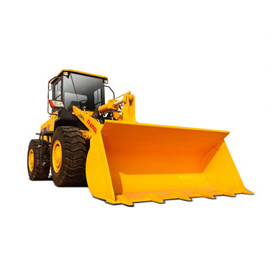Factory for Winding and Torsion Testing Equipment Manufacturing and Innovation Solutions
Understanding the Importance of Winding and Torsion Testers in Manufacturing
In the ever-evolving landscape of manufacturing, precision and safety have become paramount. Industries ranging from automotive to aerospace require stringent quality control measures to ensure that the components produced can withstand operational stresses and strains. One of the essential tools in this quality assurance process is the winding and torsion tester. A winding and torsion tester factory specializes in the development and manufacture of these testing devices, which play a crucial role in assessing the durability of products that undergo twisting and coiling.
What is a Winding and Torsion Tester?
A winding and torsion tester is an instrument used to evaluate the mechanical properties of materials subjected to winding and torsion forces. These testers provide critical data on how materials behave when coiled, twisted, or subjected to other forms of mechanical stress. This data is essential for manufacturers to ensure that their products can endure the dynamic conditions they will face in the field.
The testers generally operate by applying a controlled amount of torque to a specimen and measuring its response. The results help engineers understand the material’s characteristics, such as elasticity, tensile strength, and fatigue limits. This information is crucial for designing components that meet safety standards while optimizing performance.
Key Applications in Various Industries
1. Automotive Industry In the automotive sector, winding and torsion tests are vital for ensuring the integrity of components such as cables, sensors, and wiring harnesses. These components often undergo multiple stress cycles during their lifetime, and testing determines their resilience to such conditions.
2. Aerospace The aerospace industry relies heavily on the durability of lightweight materials that can withstand extreme conditions. Winding and torsion testers help in evaluating the structural integrity of components such as composite materials used in aircraft wings and fuselage.
3. Electronics The rapid advancement in electronics technology has led to the increased use of flexible circuits and cables. Testing these components' winding and torsion tolerances ensures they function correctly in various applications, from consumer electronics to industrial machinery.
4. Manufacturing and Construction In manufacturing and construction, the testing of wire ropes and cables is essential for safety and compliance with industry standards. Winding and torsion testers allow for the evaluation of these materials' strengths and weaknesses to help prevent failures.
winding and torsion tester factory

The Production Process of Winding and Torsion Testers
A winding and torsion tester factory typically engages in several key processes to produce quality testing machinery. These processes include
1. Research and Development The factory's engineers work meticulously to create innovative and efficient testing solutions that meet industry needs. This phase often involves collaborating with experts from different fields to ensure that the design meets technical specifications.
2. Material Selection The choice of materials for the construction of the testers is critical. High-quality, durable components are chosen to ensure the testing devices can withstand rigorous use over time.
3. Manufacturing Utilizing advanced manufacturing techniques, the factory fabricates the tester’s components. This might include CNC machining, welding, and assembly of electronic systems.
4. Calibration and Quality Control Every winding and torsion tester undergoes a thorough calibration process to ensure accuracy. Strict quality control measures are employed to guarantee that each device meets stringent industry standards before it leaves the factory.
5. Distribution and Support After production, the testers are distributed to various industries globally. Manufacturers often provide ongoing support and training to ensure that clients can utilize the testing machinery effectively.
Conclusion
The role of winding and torsion testers in manufacturing cannot be overstated. As industries continue to demand higher quality and safety standards, these testing devices provide indispensable insights into material behavior under stress. The factories dedicated to producing these crucial instruments play a vital role in upholding the integrity of the manufacturing sector. As technology advances, we can expect these testers to evolve, incorporating more sophisticated features and capabilities that will further enhance production quality and safety across multiple industries. Thus, investing in high-quality winding and torsion testers is an investment in the future of manufacturing.
-
Why the Conductor Resistance Constant Temperature Measurement Machine Redefines Precision
NewsJun.20,2025
-
Reliable Testing Starts Here: Why the High Insulation Resistance Measuring Instrument Is a Must-Have
NewsJun.20,2025
-
Flexible Cable Flexing Test Equipment: The Precision Standard for Cable Durability and Performance Testing
NewsJun.20,2025
-
Digital Measurement Projector: Precision Visualization for Modern Manufacturing
NewsJun.20,2025
-
Computer Control Electronic Tensile Tester: Precision and Power for the Modern Metal Industry
NewsJun.20,2025
-
Cable Spark Tester: Your Ultimate Insulation Assurance for Wire and Cable Testing
NewsJun.20,2025
 Copyright © 2025 Hebei Fangyuan Instrument & Equipment Co.,Ltd. All Rights Reserved. Sitemap | Privacy Policy
Copyright © 2025 Hebei Fangyuan Instrument & Equipment Co.,Ltd. All Rights Reserved. Sitemap | Privacy Policy
